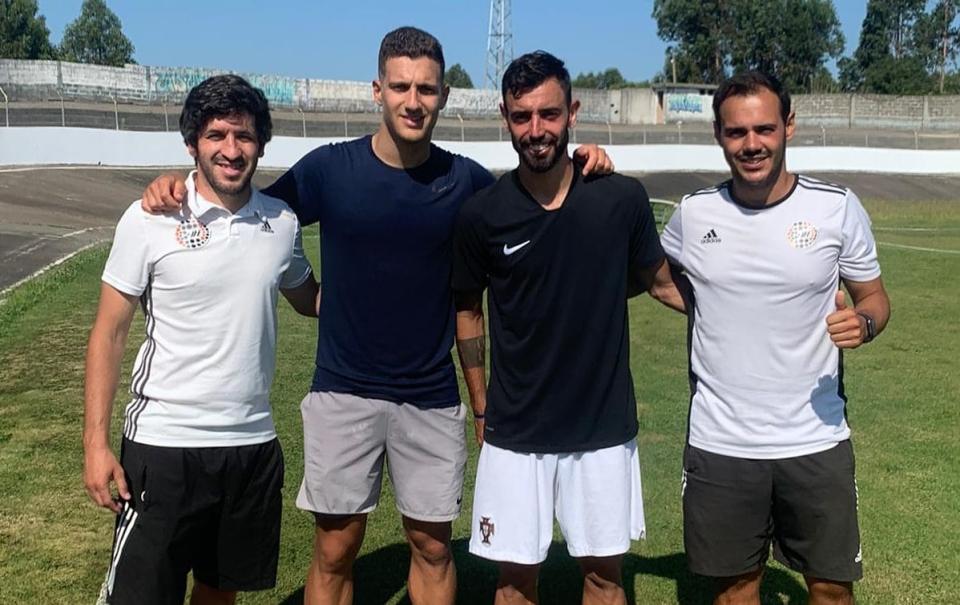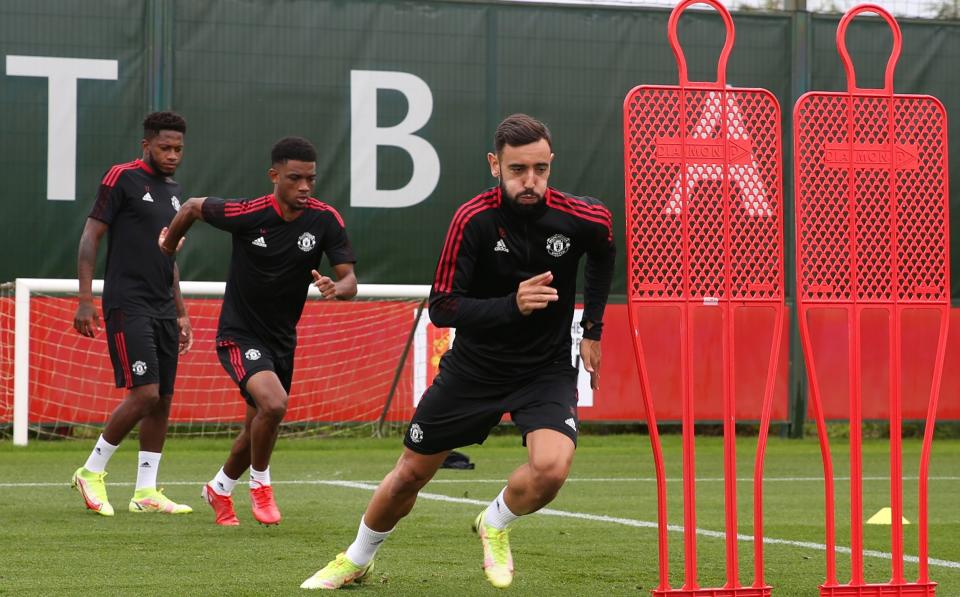Welcome to scan camp: how Bruno Fernandes spent his summer

It took Bruno Fernandes precisely half an hour to find his rhythm this season - collecting a pass from Paul Pogba and squeezing a shot past Leeds goalkeeper Illan Meslier to set Manchester United on course for an emphatic 5-1 win.
By the end of the day, Bruno was also celebrating a hat-trick, and while the most joyous celebrations were reserved for the towering stands of Old Trafford, 1,300 miles away in the Portuguese city of Porto, another man was toasting his success.
Alvaro Madureira does not like to brag about it, but he is a key figure in the Bruno success story. Madureira is one of the brains behind the IFT (Individual Football Training), a program for players to develop specific aspects of their games that have also attracted Premier League stars such as Everton’s James Rodriguez and Bruno’s United team-mate Diogo Dalot.
Before reporting back to Carrington for pre-season in late July, Bruno spent two weeks working with the academy in the city of Vila Nova de Gaia. He spent around an hour a day at the camp, fine-tuning aspects of his game he believed needed work - specifically ‘scanning’, and being aware of his position and surrounding players before receiving a pass.
“He’s a footballer who has come a long way, but, like we say in Portugal, he doesn’t want to sit in the shade of banana trees and watch life go by. He’s very focused on what he does,” Madureira told Telegraph Sport. “So what he wanted was to make sure that he got back to United with the same confidence level that he finished last season in those actions that he knew would be required of him.
“Our work was mostly concentrated on things that influence his collective game: ball reception, passing, scanning ability and finishing. These were the four main points that we covered with him during training.
“When it comes to scanning and collecting information before receiving a pass, for example, we analyse how he behaves on the pitch and give him feedback. We’ve got what we call unilateral and bilateral scans. If a player looks over his shoulder on just one side, he does it unilaterally, so we encourage him to do it on both sides. He’ll have a better perception of what’s happening around him and improve his decision making.
“It’s one of the aspects that we observed with Bruno and that we believe can make a difference.”

Bruno, 26, had broken off from his summer holiday last year to train with Madureira and his coaching team, and was so pleased at the results that he decided to return.
While a player who scored 28 goals across all competitions last season, and is generally hailed as United’s best signing of the post-Sir Alex Ferguson era, hardly needs an overhaul, Madureira believes Bruno’s determination to improve is one of the things that marks him out as special.
“His attitude is one of the reasons he has reached this far. And I have no doubt that there’s much more to come in his career. We are talking about a world-class player that while others need to repeat the same movement 30 times to fully get it, he only needs to do it a couple of times. This is how impressive he is.”
Bruno’s commitment to self-improvement during the summer was all the more remarkable given his exhausting workload last season: no other player across the top five leagues featured in more matches than he did (70), and his disappointing form at the European Championships, where Portugal exited at the last 16 stage, was largely ascribed to fatigue.
The last time he had a full summer off was in 2017, when he still played for Udinese and had a far lower profile. Even though Bruno has since developed a reputation as a kind of workaholic among his peers, he was careful to manage his workload this summer and not work himself into the ground.
“We were obviously aware of his condition, but he had a break after the Euros,” explains Madureira. “It was not like he finished the tournament and came straight to work with us. Regardless of that, we don’t demand much of the players physically. We pay more attention to the technical gesture. And we also rely on the feedback from the athletes to organize the exercises.
“Anyway, I believe he’s fresh and fit now and he couldn’t have started this new season in a better way.”

 Yahoo Sport
Yahoo Sport 





































